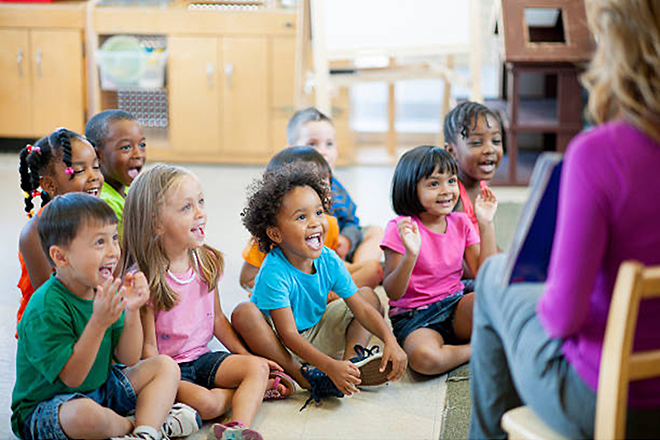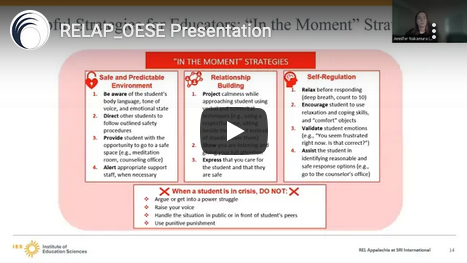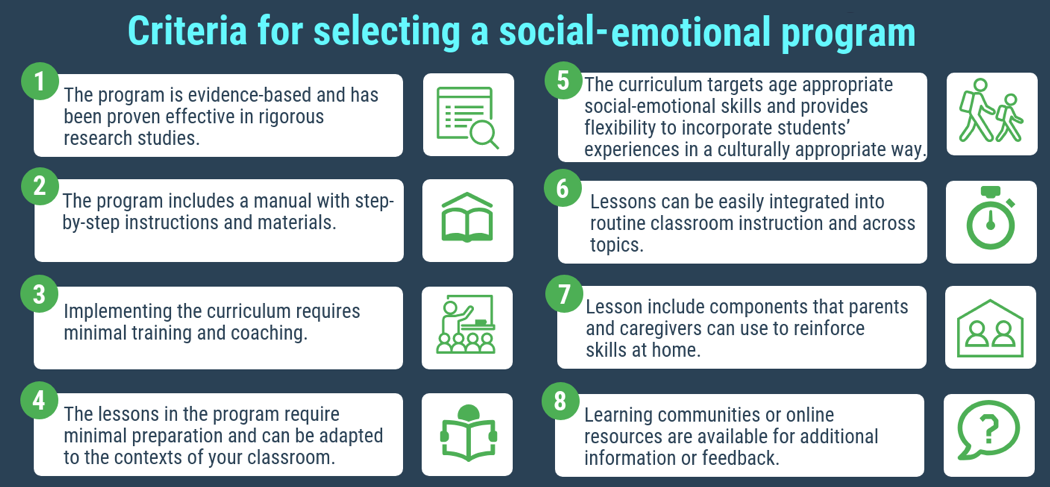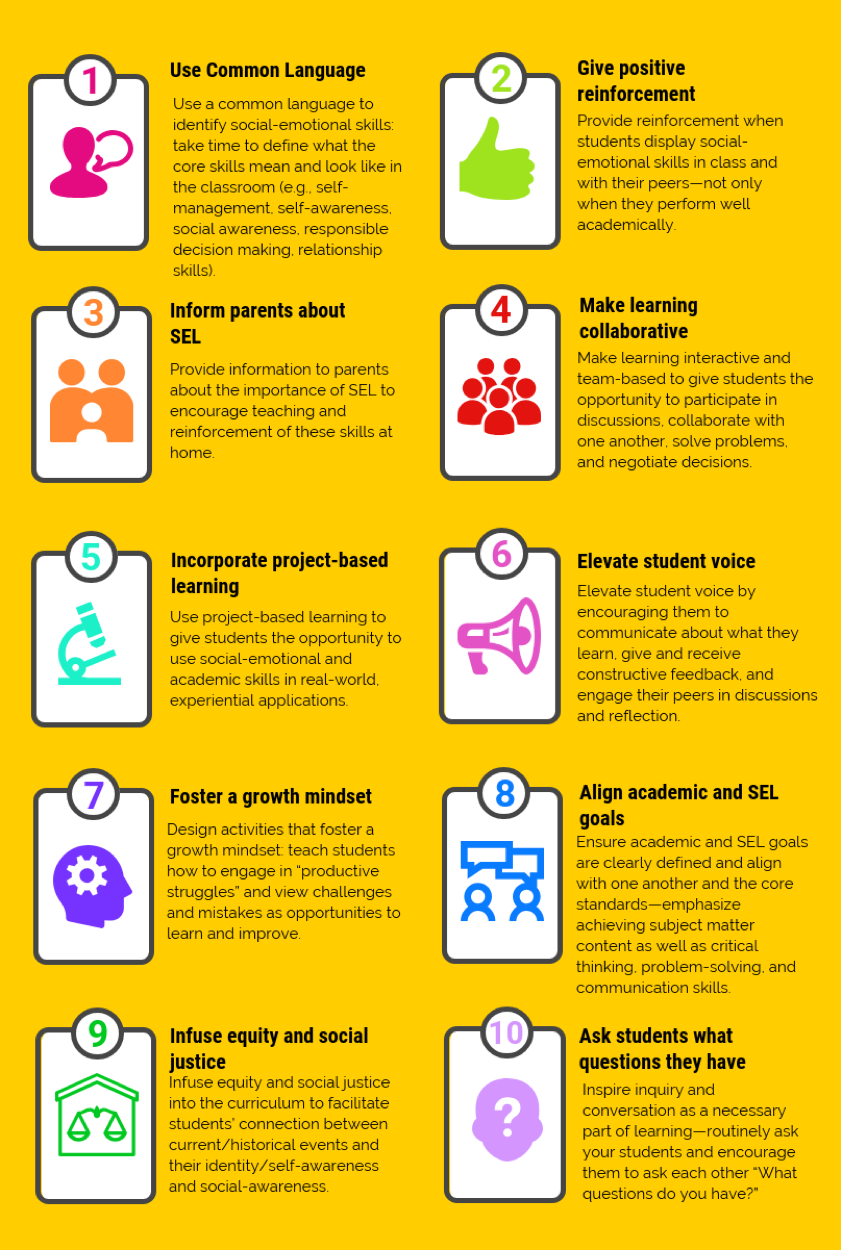SRI Education researchers are conducting an evaluation of the Pyramid Model, a three-tiered framework that supports early childhood education (ECE) teachers in preschool classrooms. The main goals of the Pyramid Model are to support ECE teachers as key figures in promoting the social-emotional skills and competence of children with and without disabilities so that all children can learn, develop, and grow in a positive and safe environment.
The COVID-19 pandemic has been a stressful and even traumatic time for many students. Educators need to be equipped with tools to identify and support students who have experienced trauma. This video provides an overview of common trauma symptoms that students may exhibit and identifies preventative strategies to support all students and targeted strategies to support students in crisis. It also highlights other resources to support a school-wide trauma-informed approach.
When you really want to focus on social-emotional learning (SEL): Selecting a standalone SEL program
Standalone social-emotional learning (SEL) programs are helpful tools for teachers who want to build students’ social-emotional skills in the classroom setting. However, it can be challenging to select an appropriate, practical, and effective classroom-wide curriculum that will work for all students. We have simplified the process to help teachers and other practitioners make a well-informed decision.
Although most teachers recognize the importance of teaching social-emotional skills, many are also concerned about having time to fulfill their other responsibilities. Here we highlight one approach to teaching social-emotional skills in the classroom: incorporating social-emotional learning (SEL) into everyday academic instruction.






